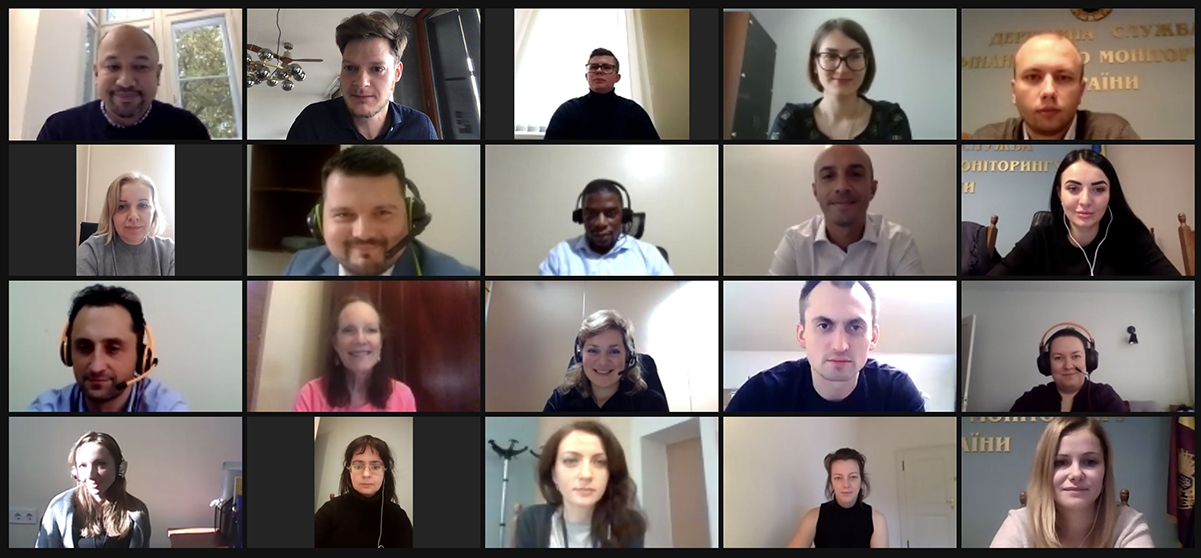Advanced Operational Analysis training in Ukraine helps financial intelligence analysts and law enforcement work better together

The training team of the International Centre for Asset Recovery last week delivered an intensive Advanced Operational Analysis training programme to 20 anti-corruption practitioners in Ukraine. This was the first time our ICAR training team has delivered a virtual workshop that involved both complex group work and simultaneous interpreting, and we are pleased to say that it went flawlessly.
The participants came from Ukraine’s State Financial Monitoring Service (SFMS), National Anti-Corruption Bureau (NABU), Specialized Anti-Corruption Prosecutor's Office (SAPO) and Asset Recovery and Management Agency (ARMA).
The training was funded by the European Union Anti-Corruption Initiative in Ukraine (EUACI). It built on two previous EUACI-funded training programmes that focused on essential skills in financial investigations and asset recovery and offshore structures/mutual legal assistance.
Analysing a suspicious transaction report: creating intelligence from information
The workshop combined our Operational Analysis eLearning module, which the participants had to complete as an assignment, with live instructor-led sessions. These sessions included a complex simulated operational analysis tailored to the Ukrainian environment, in which the participants had to:
- analyse a suspicious transaction report (STR);
- gather information from databases and open-source searches;
- request more information from reporting entities and foreign counterparts;
- co-operate with other national agencies through information-sharing mechanisms and as part of investigative taskforces.
Understanding different roles and needs
The training helped the financial intelligence analysts to tailor their analysis to the needs of law enforcement agencies by identifying relevant aspects of the criminal offences detected and by tracing illegal assets. When applied in real life, this kind of knowledge helps ensure a smooth transition from the intelligence stage to the full-fledged investigation of a case.
SAPO, NABU and ARMA representatives were also able to appreciate the role of the SFMS, which is Ukraine’s Financial Intelligence Unit, and how it can assist them in the investigation and prosecution of corruption and money laundering offences and in asset recovery. (For a general insight into this, read Thierry Ravalomanda’s quick guide to the role of FIUs in asset recovery.)
In their own words
Participants enjoyed working in multi-disciplinary and multi-agency teams. It allowed them "to join forces together to crack the criminal case" and "to work on common goals against a common enemy", they said. One participant commented: "New knowledge was gained and more active cooperation between different law enforcement agencies was ensured."
Another recurring comment was that the training was highly practical, as participants were required to apply the skills and knowledge in the "detective game" or in daily assignments. "The materials on the platform have an unusually high level of interactivity, it really helps to master the knowledge."


